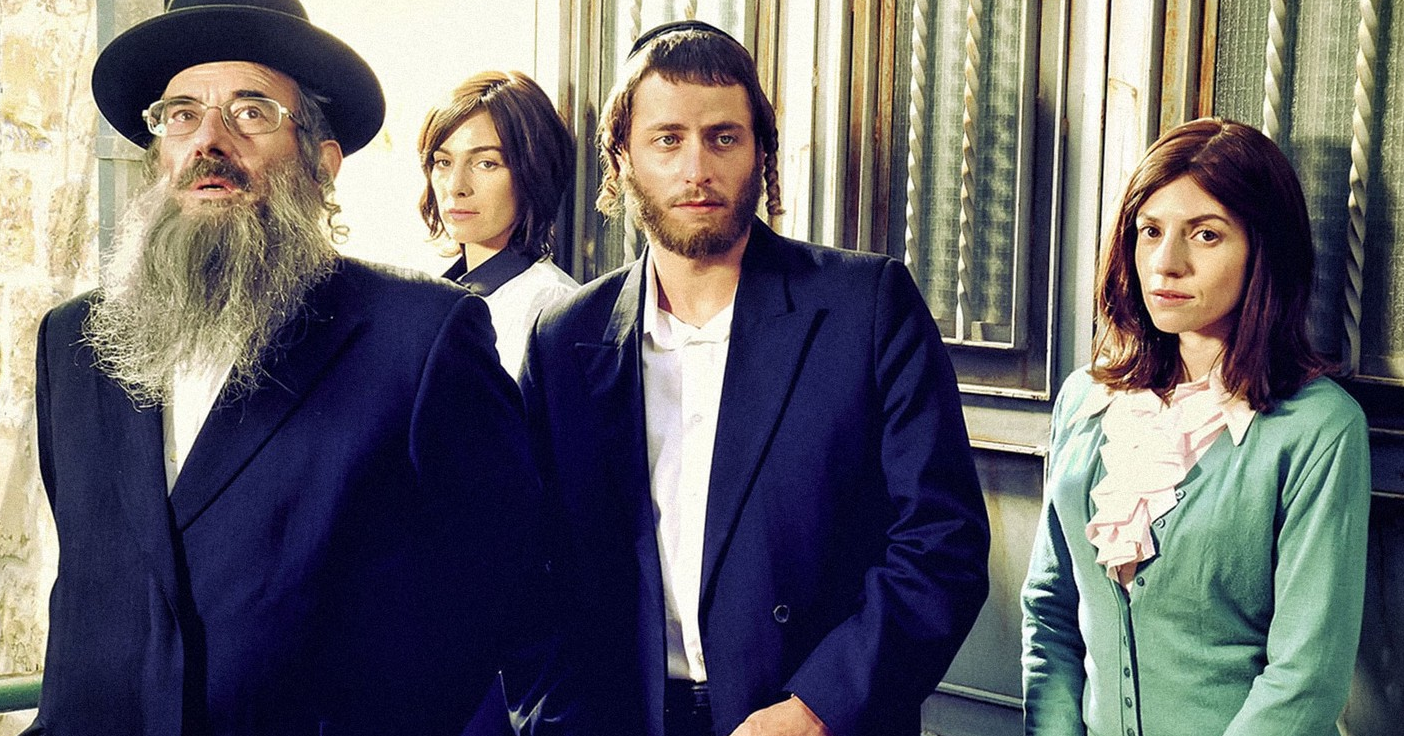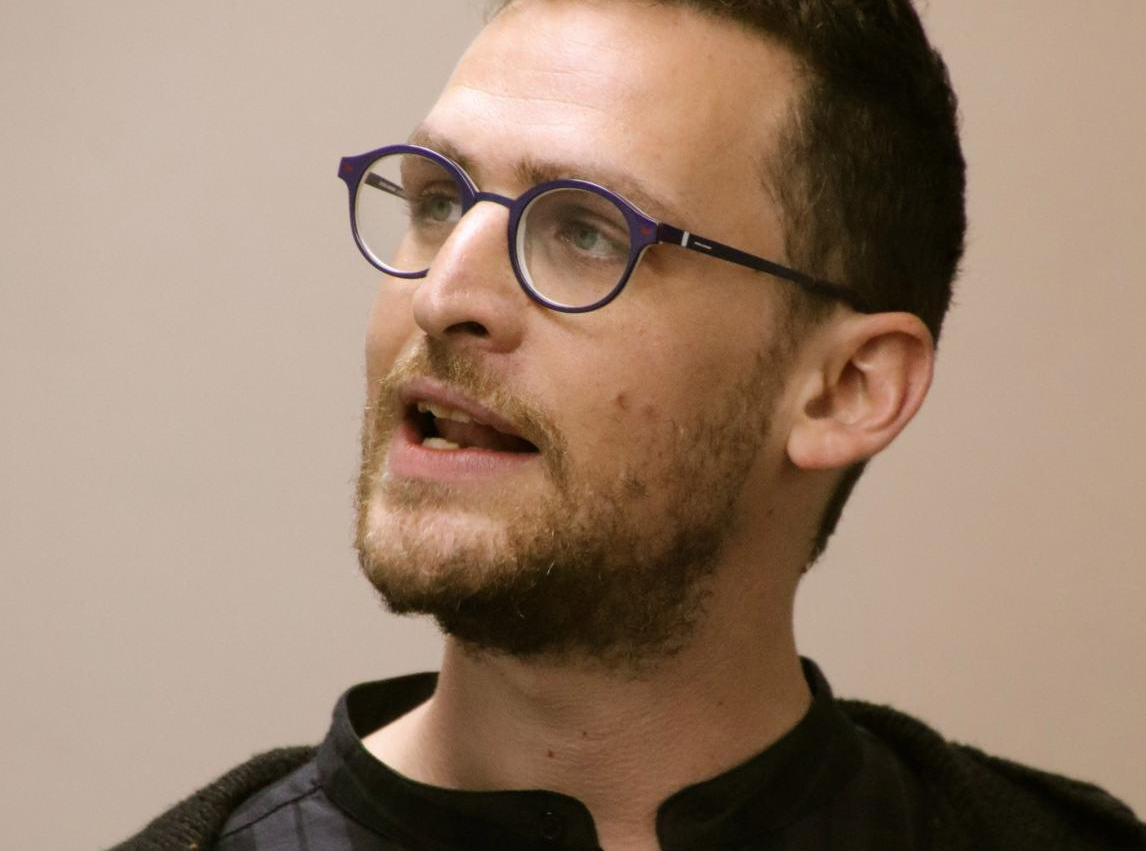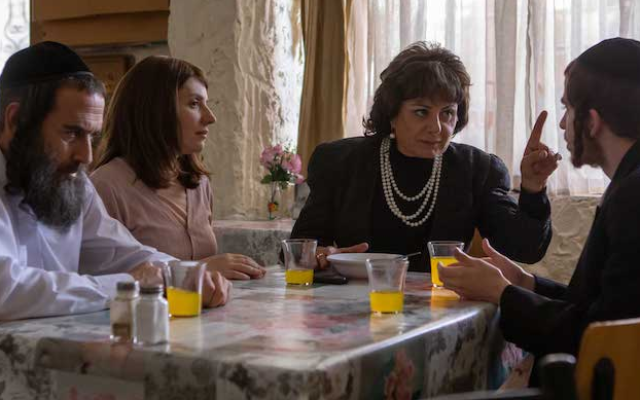‘Shtisel’ Coming Back Stronger Than Ever
The audience favorite will debut on Netflix this spring.
Chasidic Jews have come a long way in the popular imagination since they were portrayed almost 30 years ago in the Hollywood film flop, “A Stranger Among Us.”
The film, which can still be streamed online, got a dismal 22 percent approval rating on the Rotten Tomatoes film review site. Actress Melanie Griffith stars in the crime drama as a hard-boiled gentile cop who goes undercover in New York’s Chasidic community to thwart a diamond heist. She was given the Razzie Award for the year’s worst performance and Tracy Pollan, her co-star, won Worst Supporting Actress.
One line from the script by Robert J. Avrech, who is an observant Jew, seemed to summarize his view of this lamentable peek into the world of the ultra-Orthodox. He wrote, “These people are a freaking embarrassment.”
Fast forward to 2021 and American audiences are eagerly awaiting the promised arrival on Netflix of the third season of “Shtisel,” the family comedy drama set among the ultra-Orthodox community of Geula in Jerusalem. The series, which first premiered in 2013, is expected to be back on Netflix in the spring.
It has won 16 Israeli Ophirs, which is that country’s version of the Emmys and now boasts a devoted audience of viewers in 31 countries.

Although it is set in Israel’s ultra-Orthodox community, its creators are quick to deny the series is primarily about religion.
Yonatan Indursky, who grew up as an ultra-Orthodox Yeshiva student in Israel, admits that when the series was first pitched to the Yes satellite TV channel in Israel, he and his partner Ori Elon, who attended a yeshiva in Efrat, maintained that there was not one religious character in the series. He told an online audience of the New Israel Fund that that “isn’t a big lie.”
Indursky said, “I truly believe that this is not a series about ultra-Orthodox people, but this is a series that deals with human beings. And the story deals with conflicts that are not necessarily related to the ultra-Orthodox way of life. And I think these conflicts can be understood and identified with by everyone. And this is what we were trying to do.”
Indeed, there is little in the series to suggest the deep animosity that is said to exist between most Israelis who are liberal in their approach to Jewish life and the strict conformity of this religious community.
Over the past year there have been repeated clashes between the government in Israel and the leadership of the ultra-Orthodox or Haredi community. Government orders to close religious schools and to minimize the number of participants in community gatherings have frequently been ignored. A disproportionate number of the religious community in Israel and in America have been stricken by the COVID virus and have died.
Indursky, who was once a student at the prestigious Ponevezh Yeshiva in Jerusalem, said that he is “trying to separate our characters from what he believes are the ‘bad connotations’ of the ultra-observant life. Although the characters are deeply constrained by the discipline of community relations, the patriarch of the Shtisel family, Reb Shulem, his daughter Gitty and his youngest son Akiva wrestle, on many levels, with the universal hardships of everyday human life.
The show’s co-creator Indursky attributes the hostility that separates the secular world and the religious one to a lack of understanding about who these religiously committed people are. He said he came to realize this one day after he had left the religious community and was studying at the Spiegel Film School in Israel.
“Suddenly I understood how secular people look at the ultra-Orthodox in Israel. I think this is not hatred and this is not alienation. We simply do not see them. I think that was the moment that gave birth to ‘Shtisel.’”

The success of “Shtisel,” with audiences that see themselves in the trials and travails of the characters in the series, is undeniable.
The first episode of the new season was previewed at a highly successful fundraiser at New York’s prestigious Streicker Center at Temple Emanu-El Dec. 17, three days before the series premiered in Israel.
A benefit screening was also scheduled for a modern Orthodox high school in Chicago and later this month, Bnei Akiva, the international Religious Zionist youth group in Los Angeles, will get a sneak preview of the series.
If “Shtisel” can bring us closer to a genuine recognition of the singular and diverse elements in the Jewish community, the Israeli producer of “Shtisel” believes it could be a major accomplishment.
“What I’m actually looking for in my filmmaking is to place a spotlight on a person and to remind us that every person is unique, that there is no man or woman that is like that or will there ever be.”




comments